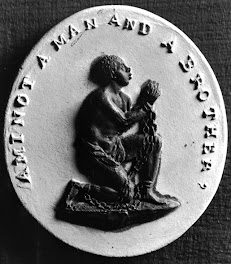Death, Albert Camus once wrote, is philosophy's greatest problem. And it is so. Yet the Bible presents this universal problem somewhat differently, as Ezekiel 18:4 states:
"Behold all souls are mine; as the soul of the father, so also the soul of the son is mine: the soul that sinneth, it shall die."
The biblical problem is instead not the universal effect called death - but rather the universal cause known as sin. But - alas - it is ultimately a sovereign God to whom we are all accountable - all of humanity - as Solomon, a wise philosopher if ever there was one, wrote in Ecclesiastes 12:7:
"Then shall the dust return to the earth as it was: and the spirit shall return unto God who gave it."
Well, there's nothing like the news of death to awaken us out of our Disneyland odysseys, eh? During the past week-and-a-half I've read of the deaths of Bernic Mac, Isaac Hayes, Skip Caray, and Aleksander Solzhenitsyn. What follows are the briefest of eulogies.
Bernie Mac was from a new school of Black comedians called the Kings of Comedy who'd successfully transitioned from comedy club to television and whose untimely passing was both stunning and sorrowful. I didn't get to watch his show often, but when I did he made me laugh out loud. My son and I routinely like to mimic one of his funnier sequences from "The Bernie Mac Show". His character was the voice of the post-modern dad - at odds with trying to be hip, cool, yet firm and decent, while raising 3 children. He was at his best in his unique, between-scenes monologues. I loved his comic tension and the way he said things.
"But perhaps the strongest weapon was that voice, that amalgam of thought and that delivery that could rise like a tidal wave..."
Then there is Isaac Hayes. I cannot express deeply enough how influential Isaac Hayes was in the transition of the public image of the "Black Man" in the post-civil rights 1970s. I was a little boy enamored by the "Soul Music" style when he burst upon the scene with the theme song from the movie, Shaft. The PBS documentary on WattStax now airing brings back fond memories of my youth and the music I listened to. Hayes made the Black-Male-as-entertainer a dignified, cool, thing. His rich, mellow tone in both song and spoken word was unmistakably "black male" at a time when being publicly "Black" took courage, after all, we were still "Negroes". Hey, don't laugh, Glen Campbell, John Denver, and even Hee Haw played music more often celebrated. But Hayes was Black Power without confrontation and he did his thing without a trace of shuffling and grinning. He made us sing with him and take notice.
"When you think of soul music, you think of Isaac Hayes - the expression, the sound and the creativity that goes along with it."
Skip Caray was the radio voice of the Atlanta Braves and before that the Atlanta Hawks, my hometown baseball and basketball teams. He was a quick tempered, quick quipped, smart mouth. But, boy, he was enjoyable to listen to! He made you pay attention to little things he said because it seemed he always had something impolitic - or impolite - on his mind that he was trying to say with code words. For almost all of the Braves' high moments in Atlanta, his was most often the voice you heard on radio, so he was memorable for that alone. I still say he was a better basketball play-by-play man than he was baseball. But in any case he made Atlanta folks cheer and jeer.
"He wasn’t from the neo-announcer’s school of happy talk. Skip hated the Wave and the Infield-Fly Rule and said as much at every opportunity. When he did a call-in show on WSB in the ’80s, he suffered clever callers only grudgingly and the bozos not at all. But because he was Skip, we didn’t much mind."
Finally, there is Aleksander Solzhenitsyn - a sort of Alexis de Tocqueville of our generation. A profoundly deep, incisive, spiritual, and grim human being. You would be too, if you'd been through what he'd been through - a Soviet prison camp. Fascinatingly insightful about the former Soviet Union, he was equally as precise as to the moral condition of America - the land he came to adopt as his own before the fall of the Communists. Check out this column about him from Cal Thomas, who calls him a prophet. And he may well be. This phrase alone to me stands out as profound, so brace yourselves:
"Solzhenitsyn loved America, but said he couldn't recommend it in its present state as a model for his country: "Through intense suffering our country (Russia) has now achieved a spiritual development of such intensity that the Western system in its present state of spiritual exhaustion does not look attractive."
Spiritual exhaustion! Our America? What insight...! The year was 1978.
In Pace Resquietam to each of these men that it may have been they have known the Lord Jesus before that great and glorious Day - and above all - that He know them!
Baruch Hashem and Soli Do Gloria!
Wednesday, August 13, 2008
Subscribe to:
Post Comments (Atom)

No comments:
Post a Comment